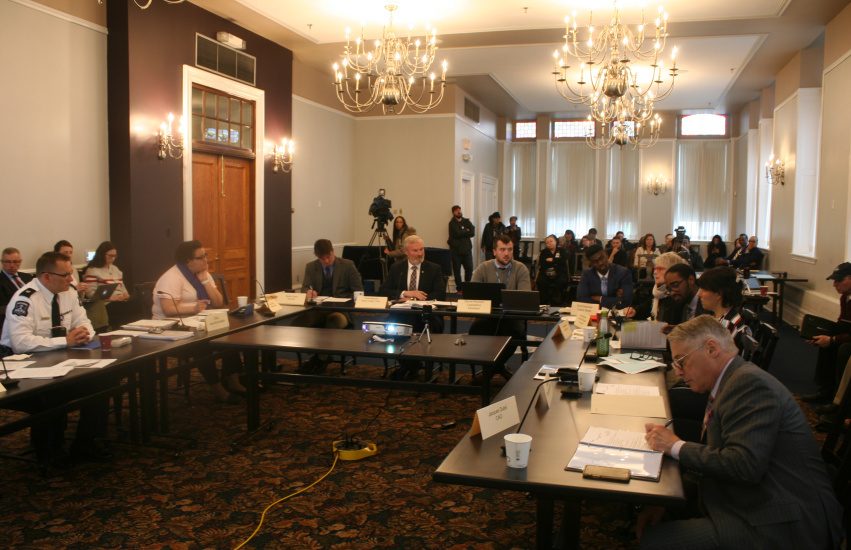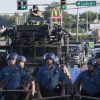KJIPUKTUK (Halifax) – This afternoon the Halifax Board of Police Commissioners recommended unanimously to the Halifax Regional Police Department, the Halifax RCMP, and the Nova Scotia minister of Justice, that the racist practice of street checks be suspended immediately.

Although a good thing, this is not the ban many members of the African Nova Scotian community have demanded. Instead, it’s a moratorium, while the powers that be, including the Board itself, look at police check policies and procedures in light of the Wortley report recommendations.
This comes after the findings of the Wortley report caused the African Nova Scotian Decade for People of African Descent Coalition (ANSDPAD) to argue that the practice is illegal because, through its inherent racist bias, it contravenes federal Charter and provincial human rights legislation.
See also: Media release and open letter: African Nova Scotian DPAD Coalition leaves meeting on street checks
Note that strictly speaking it’s not even a decision the Board made here. Rather, it’s a recommendation, even to the (acting) Chief of Police. Turns out, some two years after the Wortley report got initiated, that the Board has no believes it has no jurisdiction to actually order the Chief of Police to do anything much about street checks in an operational context.
Board member and councillor Lindell Smith suggested that stopping the racist practice of carding is a good thing, no matter whether it is stopped as a ban or as a moratorium.
But for some who came out to attend the board meeting a moratorium wasn’t quite good enough.
“The Commission needs to have the foresight and the courage to recommend a complete ban, full stop,” said Connor Smithers-Mapp, a lawyer and anti-Black racism activist.
“To recommend a moratorium pending a new policy on street checks is wholly deficient. We don’t need a policy, we already have a policy, it’s called the law. It’s called the Canadian Charter of Rights and Freedoms. We have the Charter which says that as a police officer you are not empowered to just go up to somebody merely based on the colour of their skin, and ask them for ID and ask them what they are doing there,” Smithers-Mapp said.
Dalhousie University professor Isaac Saney, a member of Racism Free Transit in Halifax, emphasized how street checks are only one example of the many ways the Black community has been criminalized historically.
“As a Black Nova Scotian in a public space, street checks function to make you feel as unwelcome as possible,” Saney said.
“The suspension of street checks is symbolic, and the African Nova Scotian community does not expect that now racist behaviour by the police will cease. The fundamental issue is that the Black community has been oppressed and criminalized, had their human rights violated systematically by the Halifax Police for decades, it’s been a historic problem.”
“Banning street checks is a way to acknowledge this human rights violation. It would be a small step along the way. That so many people came out today demonstrates how much this resonates with the community. It validates how a ban of street checks would be an important symbolic action,” said Saney.
See also: Who’s policing the police in Halifax?
With a special thanks to our generous donors who make publication of the Nova Scotia Advocate possible.
Subscribe to the Nova Scotia Advocate weekly digest and never miss an article again. It’s free!



